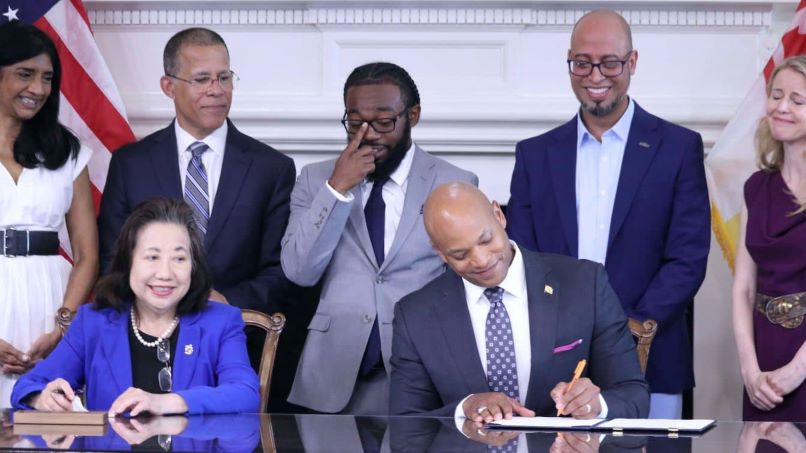In a historic move, Maryland Governor Wes Moore (D) has pardoned over 175,000 low-level marijuana convictions, nearly a year after recreational cannabis was legalized in the state. This decision is a significant step towards addressing the detrimental consequences of the War on Drugs, which has disproportionately impacted communities of color.
A Step Towards Racial Equity
Governor Moore acknowledged that while legalization is a positive step, it does not undo the decades of harm caused by the criminalization of marijuana. Maryland Attorney General Anthony Brown (D) echoed this sentiment, stating that pardons are crucial to racial equity.
“While the pardons will extend to anyone and everyone with a misdemeanor conviction for the possession of marijuana or paraphernalia, this unequivocally, without any doubt or reservation, disproportionately impacts — in a good way — Black and Brown Marylanders,” Brown told The Washington Post. “We are arrested and convicted at higher rates for possession and use of marijuana when the rate at which we used it was no different than any other category of people.”
Scope of the Pardons
The pardons will forgive offenses related to the possession of cannabis or drug paraphernalia. Specifically, they will affect more than 150,000 misdemeanor convictions for simple possession of cannabis and over 18,000 misdemeanor convictions for use or possession with intent to use drug paraphernalia, according to the Associated Press.
Approximately 100,000 individuals will have their convictions forgiven, with some receiving pardons for multiple convictions. Notably, about a quarter of the pardons are from convictions in Baltimore City, reflecting the disproportionate impact of marijuana-related arrests in urban areas.
Reactions and Impact
Baltimore Mayor Brandon Scott (D) praised the pardons as “life-changing,” acknowledging the profound impact the War on Drugs has had on communities like Baltimore. “This action, and our work together to overcome the dark legacy of our predecessors, will lay the foundation for a better, safer future for all of our residents,” Scott said in a press release.
While the pardons will not result in the release of incarcerated individuals, they will significantly impact those with prior convictions. Electronic court records will reflect the pardons within two weeks, and criminal background check databases will be updated within 10 months. However, public court records will still show the convictions but will be marked as pardoned unless the individual files for an expungement.
A Path Forward
Governor Moore emphasized the importance of enacting policies that can reverse the harm of the past and build a brighter future. “When it comes to cannabis, rolling out one of the best and most equitable legal markets in the country is important, but that rollout must go hand-in-hand with pardoning past conduct,” he said. “And Maryland is going to lead by example.”
The pardons come after a 2022 referendum cleared the way for adult use of cannabis in Maryland, with 67 percent of voters supporting the constitutional amendment. Recreational marijuana was then legalized for residents 21 and over under state law on July 1, 2023, although it remains illegal under federal law. Medical use is also legal in Maryland.
Individuals who believe they qualify for a pardon but did not receive one can apply for a pardon through the state’s official website.
